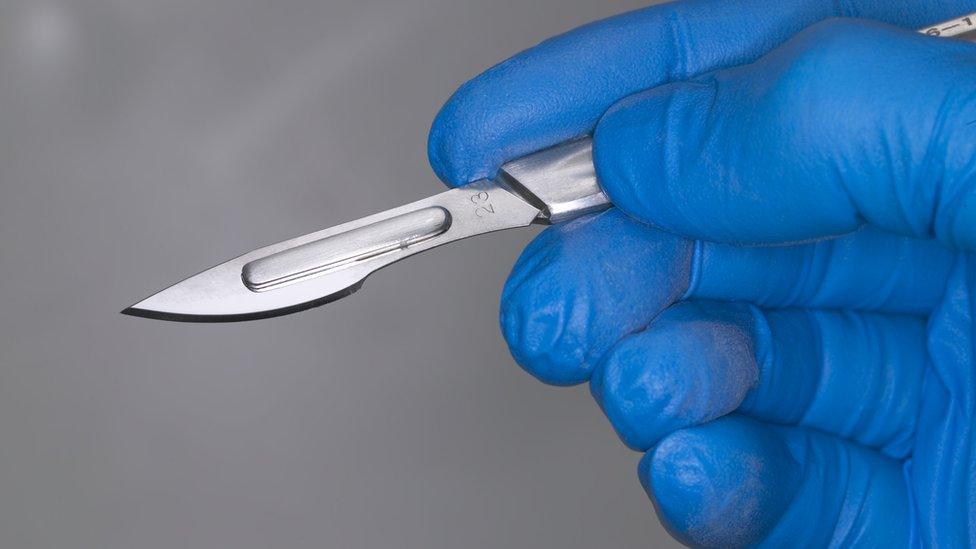Will consultants take the scalpel to Hunt?
- Published
- comments

Sooner or later the government in England will table an offer to consultants to reform their contract.
British Medical Association negotiators will then, in all likelihood, ask the union's members what they think - and that could set in train a process that could make or break not just the junior doctors' dispute but also Health Secretary Jeremy Hunt's approach to the NHS.
While the dispute with junior doctors has dominated everyone's attention, the government has also been meeting with the BMA about the consultant contract.
It is all part of the desire for a "seven-day NHS". The current contract has an optout that allows doctors to refuse to do non-emergency weekend work.
That can result in hospitals having to pay large sums in overtime payments - sometimes three to four times the normal rate - to get consultants in on Saturdays to do routine work.

The consultants' contract

Dates back to 2003
Includes an optout that means consultants do not have to do non-emergency work at weekends
Few opt out in practice but that's because many hospitals don't ask them to work because of it
There are 45,000 consultants in England
The average salary is £83,500, which can be topped up with overtime payments, bonuses and private work

While they don't like it, there is an acknowledgement among consultants' leaders that the optout will have to go. The BMA effectively acknowledged as much by entering talks with ministers in October, after Jeremy Hunt told them if they didn't he would impose the changes on them as he is doing with junior doctors.
There is also an acceptance among many that if they resist they would struggle to garner the same public support junior doctors have, given that the average salary for a consultant is more than £80,000 (and that is before overtime payments and any private work are taken into account).
It is one of the reasons why the talks have gone amicably compared to the juniors and why in normal circumstances there would be reason to believe that a reasonable offer by the government would have a good chance of getting voted through by the membership.
But, of course, we are not in a normal situation. While these talks have been staged separately from the junior doctor negotiations, they're not taking place in a vacuum.
Consultants know if they agree to any offer, it will leave their junior colleagues horribly exposed as ministers push ahead with the imposition of their contract. How much will this influence any decision they are asked to make?
The issue is further complicated by the fact that the BMA is giving consideration to allowing some junior doctors at the end of their training - senior juniors if you like - the opportunity to vote on any deal.
Depending on the numbers, that clearly has the potential to influence the outcome. Of course, all this is hypothetical - an offer hasn't even been made yet.
But if and when it is (and I am told it could come in the next week or two) it will pose a real dilemma for the medical profession.